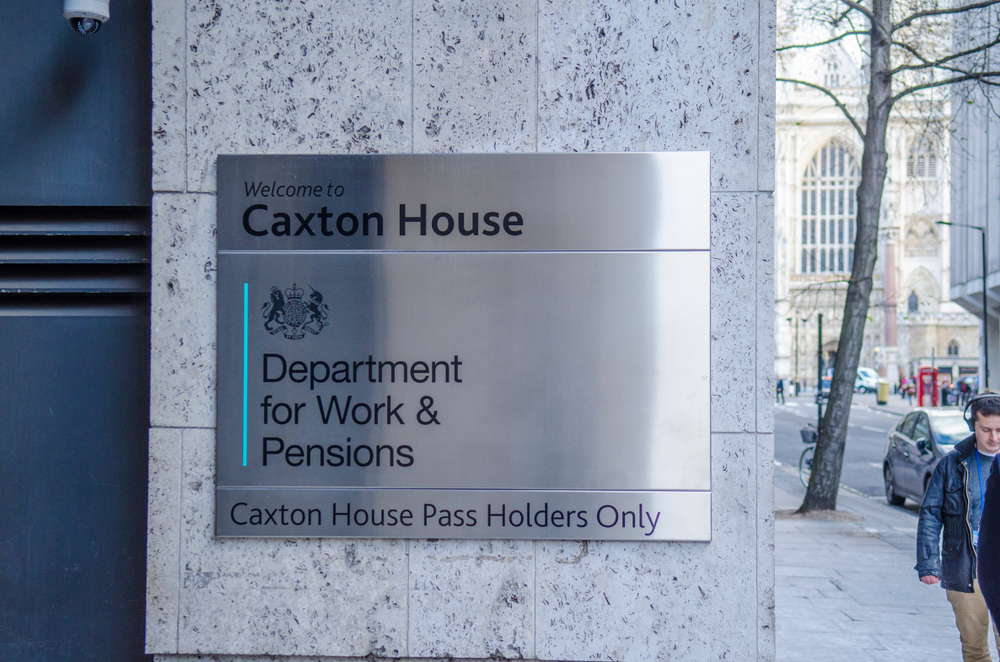Up to 1 million families who are entitled to receive pension credit did not claim the benefit in 2019, according to the Department for Work and Pensions' (DWP) latest estimates, with up to £1.8bn of available pension credit going unclaimed as a result.
According to the DWP, this represents around £1,700 per year for each family entitled to receive pension credit who did not claim.
The data, which covers the financial year ending (FYE) 2019, found that an estimated 63 per cent of families who were entitled actually received the benefit, a similar take-up rate as was recorded in FYE 2013 (62 per cent), and two percentage points higher than in FYE 2018.
More broadly, the estimates revealed that just six out of 10 of those entitled to pension credit have claimed the benefit, resulting in just 76 per cent of the total amount of credit available being claimed.
Whilst this expenditure take-up was 6 percentage points higher than for FYE 2018, the DWP noted that it was “statistically insignificant”.
Furthermore, it explained that as this is higher than the caseload take-up rate, it implies those not taking up pension credit may only be eligible for smaller amounts, as was the case in previous estimates.
Commenting on the data, Interactive Investor head of pensions and savings, Becky O’Connor, noted that whilst there was a "slight uptick" in the number of people claiming, there remains a "huge gap" in benefit uptake among those who need it.
She stated: "More needs to be done to help vulnerable older people access this money, particularly as many are isolated at home during local lockdowns, and may be missing posters from the government’s awareness campaign.
“A simple letter in the post to eligible households may be more effective in improving take-up, as well as information to younger relatives who can help with claims.”
Echoing this, Royal London pension specialist, Helen Morrissey, agreed that pension credit has remained "stubbornly low", urging the government to take a greater focus on take-up rates.
She continued: “Earlier this year the government ran a campaign in GP surgeries and Post Offices aimed at boosting awareness – it is to be hoped this will make an impact in next year’s figures.
"Pension credit is a benefit aimed at the very poorest of pensioners and so it is vital that those who are entitled to claim it do so.
“It also acts as a gateway to other benefits such as free TV licences for the over 75s. In the House of Lords this week it was said the DWP has no written strategy aimed at boosting take up of this benefit. We would urge government to make this a key area of focus.”
The DWP estimates also showed a number of continued trends, with take-up rates for those aged under 75 remaining higher than for those aged over 75, at 64 per cent and 62 per cent respectively, although the DWP noted that this has “generally been the story".
Indeed, recent research from Just Group revealed that more than three quarters (77 per cent) of over 75s were unlikely to check their pension credit eligibility.
The department also stated that there have been “consistent trends” in the take-up of pension credit between couples, single men and single women since FYE 2013.
These trends continued in FYE 2019, with the caseload take-up of pension credit by couples (56 per cent) remaining lower than that of single males and females, with caseload take-up rates of 65 per cent for both groups.
Just Group group communications director, Stephen Lowe, noted that, at an individual level, the findings suggest that many people struggling to make ends meet may not realise they are entitled to financial help or find the system too confusing to understand.
He added: "Our own research found that four in 10 (42 per cent) of those aged over 65 had never checked if they were eligible for a benefit, a figure that is higher among homeowners (49 per cent) and those aged over 80 (57 per cent).
“Ultimately it is the responsibility of people to claim for themselves. Those with aged relatives or friends they see struggling for income can help them check.
"The government web site has links to useful third-party calculators while other sources are Citizens Advice and local councils.”
Latest News
-
OBR analysis reveals potential impact of salary sacrifice changes
-
Strong funding levels continue as endgame landscape reshaped by innovation
-
Harwich Haven Authority Pension Fund finalises £45m buy-in with Royal London
-
GAD publishes LGPS gender pension gap reporting guidance
-
DB scheme funding levels continue to improve heading into 2026
-
News in brief - 6 February 2026
Private markets – a growing presence within UK DC
Laura Blows discusses the role of private market investment within DC schemes with Aviva Director of Investments, Maiyuresh Rajah
The DB pension landscape
Pensions Age speaks to BlackRock managing director and head of its DB relationship management team, Andrew Reid, about the DB pensions landscape
Podcast: From pension pot to flexible income for life

Podcast: Who matters most in pensions?

In the latest Pensions Age podcast, Francesca Fabrizi speaks to Capita Pension Solutions global practice leader & chief revenue officer, Stuart Heatley, about who matters most in pensions and how to best meet their needs
© 2019 Perspective Publishing Privacy & Cookies










Recent Stories